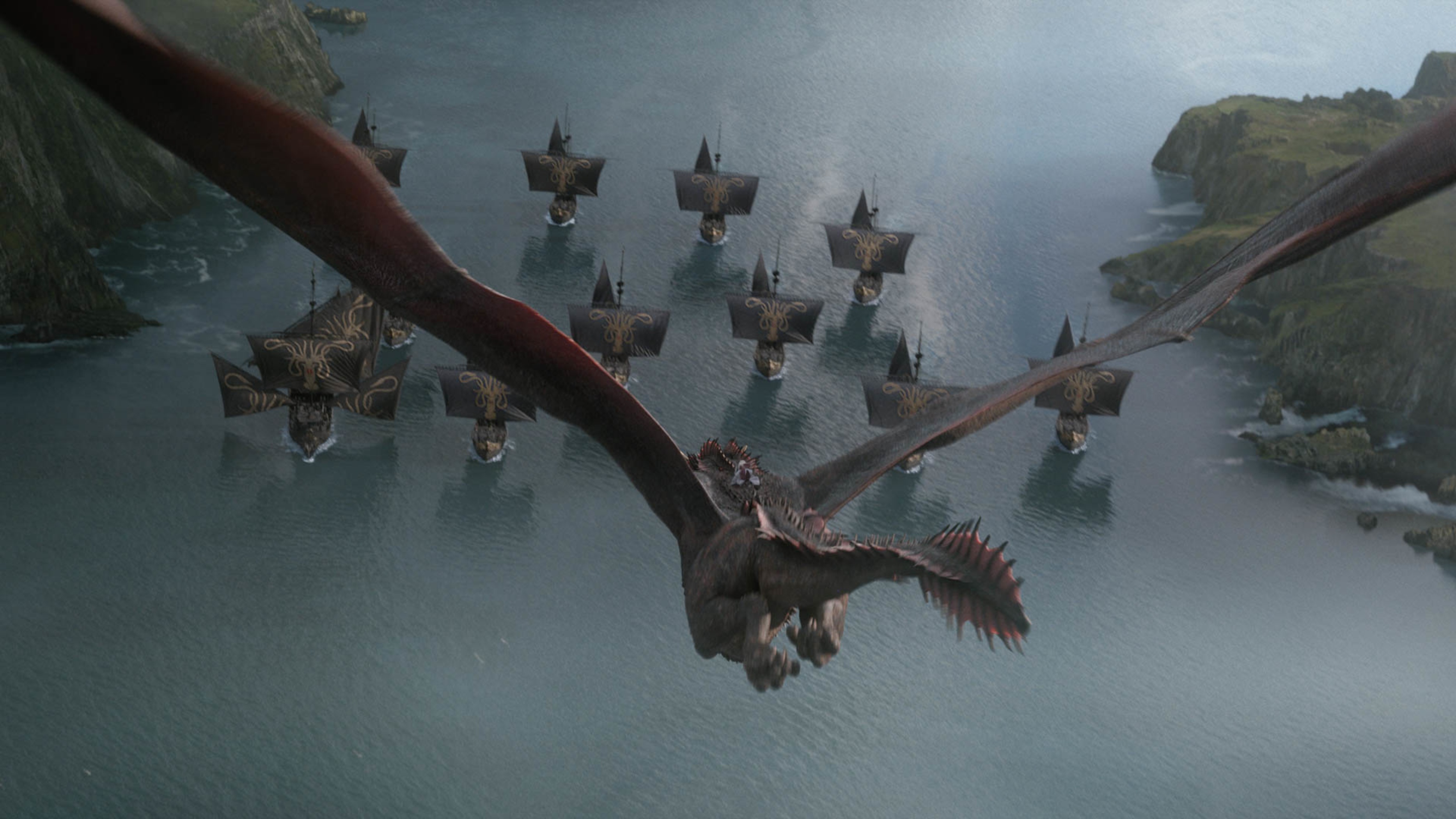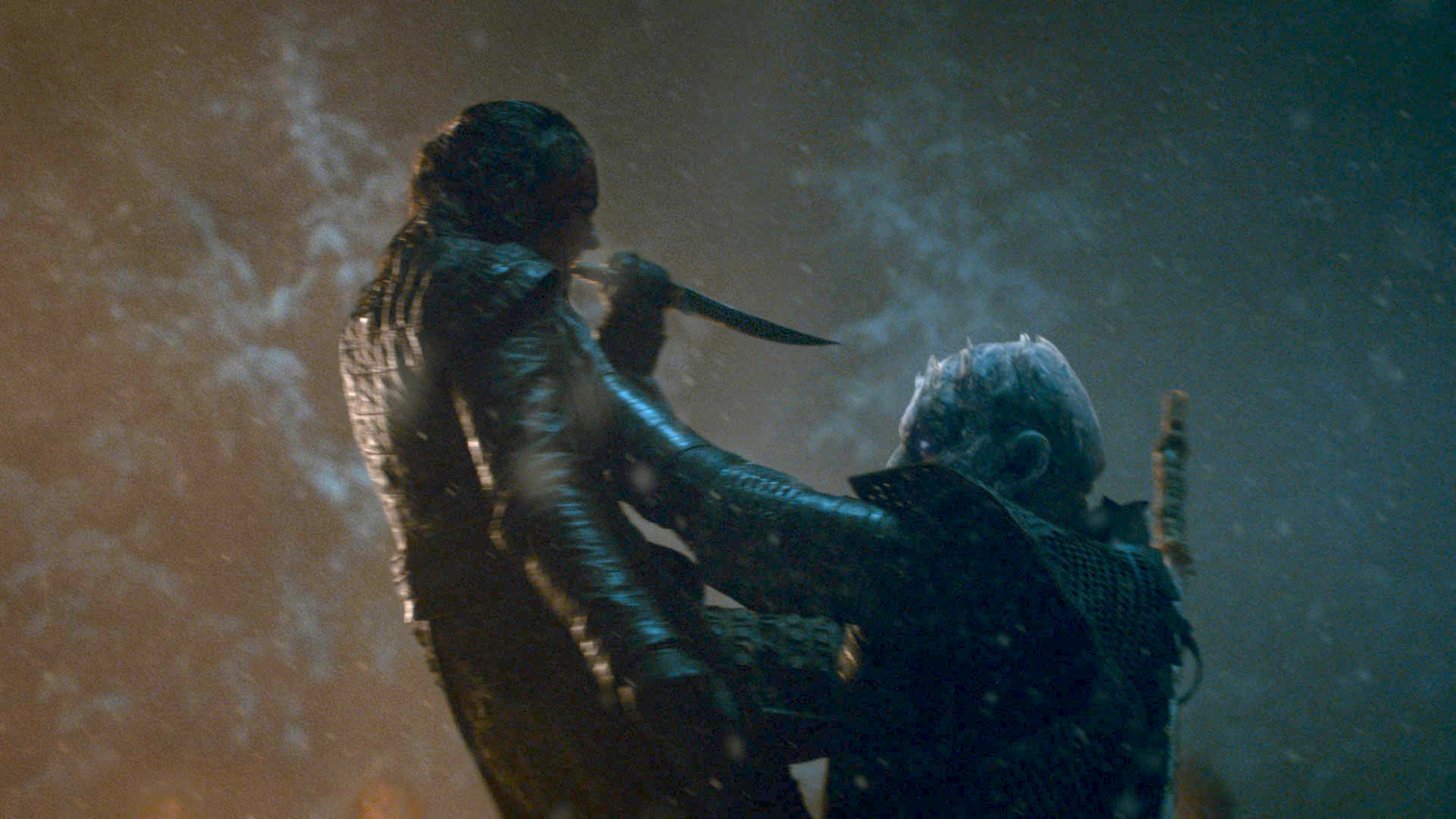G of Thrones has begun to infuriate some of its many fans, and it’s not all due to misplaced Starbucks cups and abandoning beloved direwolves.
To many, once-grounded characters seem to have abilities and opportunities that fail to make sense. The temporal logic of the series has diminished as the action’s inched closer to the season 8 finale. But there might be one way to explain it: Game of Thrones is a video game now.
[Ed. note: this post contains major spoilers for all episodes of Game of Thrones]
A show that was once a praised as behemoth of storytelling is, eight seasons in, being more and more singled out for its flaws. Everything from the simplicity of battle strategies to framing Sansa’s trauma as character growth, have become sticking points for dedicated fans. On Reddit, you’ll find little things irking the forum-dwellers: Jon Snow screamed down the ice dragon; Jaime and Brienne survived the Battle of Winterfell despite being constantly overwhelmed by zombies; Somehow Dany knew Cersei had captured Missandei.
One of the most mocked aspects of the show is how the characters now seem able to zip effortlessly around the whole world. Traveling from King’s Landing to Winterfell once took multiple episodes. Now, that’s done in one scene. How can Daenerys travel 2,600 miles in a single episode to save Jon Snow? How can Arya travel from Braavos to Riverrun in the span of time it takes to fight the Battle of the Bastards? For some viewers, these inconsistencies shatter the credibility the show about dragons and cold zombies once had.
But season 8 works under a different set of rules than everything before it. To put it one way, the characters have powered up enough to have unlocked new traits and abilities.

Video game players can probably follow the logic: Characters gather new weapons and powers as they advance through the game, getting them ready for the final boss. The whole metroidvania genre is based around playing a character who starts as generally weak. Through exploration, side quests, and new tools, the character eventually becomes strong enough to take on the big bad at the end.
Arya Stark is the perfect encapsulation of the video game logic that Game of Thrones now uses. We first met her as a feisty, though relatively powerless, character. Her character beats after that could only be described as “leveling up.”
When Jon Snow gives Arya her beloved Needle sword in season one, he might as well say, “It’s dangerous to go alone! Take this.” After that, she has the lessons with Syrio Forel (level up!). She meets Jaqen H’ghar and receives an iron coin (level up!). She goes to Braavos and is accepted into the House of Black and White (level up!). She loses her vision, regains it, and uses that skill to kill the Waif (level up!). Returns to Westeros a killing machine and Bran presents her with the Valyrian steel dagger (level up!). Finally, before the Battle of Winterfell, Gendry gives Arya her dragonglass blade staff (level up!).
With all of these abilities and weaponry, Arya has basically completed her skill tree. No wonder that she is able to fast travel through the castle, get to the Night King, and slide that dagger in between his frozen ribs.
Achievement unlocked.
Many fans were dismayed that Arya was able to plot her way through Winterfell Castle, sidle past all the White Walkers, and leap into the air to attack the Night King. How did she get there without dying or being stopped? Is that even possible?
If you look at it through the lens of a video game, the lapses in logic start looking like rewards for playing this long.

The characters have collected Valyrian steel and discovered dragonglass. Armies have been amassed and plenty of points have been put into intelligence. Jon leveled up to fly a dragon. So why would fast travel be that hard of a concept to grasp?
The video game logic in Game of Thrones has been growing more and more apparent as the show speeds towards its finale. Every decision, every kill, and every death (not to mention every miraculous, heavily damaged survival) are no longer to develop characters, they are now about riding the story’s momentum to the final few confrontations.
In the same way, even the most carefully-crafted, emotionally-introspective video game narratives eventually bend their the will of the plot. After you learn learn all about your crewmates in Mass Effect, you still have to take on the Reapers. After Joel and Ellie bond on their trip across the country in The Last of Us, it still ends in a final confrontation with the Fireflies.
By the time a final battle comes around in a video game, there’s not much room for more character development. The characters are all solidified, they have the tools necessary to finish the fight, and the focus shifts to wrapping up the story.
It’s been the same thing in these waning seasons of Game of Thrones, all of the characters have explored the world, completed multiple side quests, and gathered all the needed equipment. Credibility and careful consideration for plotting are no longer needed now that King’s Landing is in view. The only thing that’s missing is a chance to hold the controllers ourselves.
